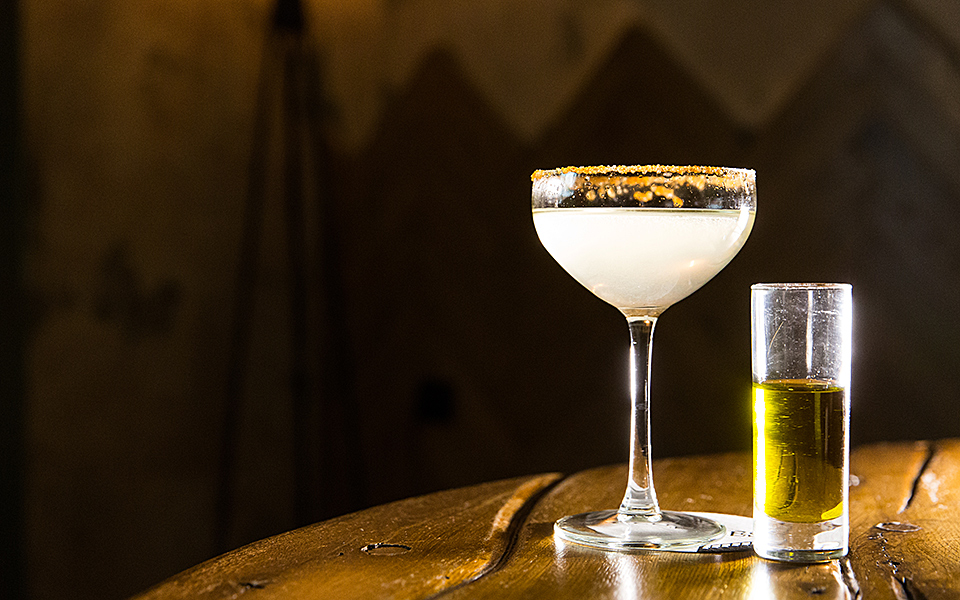The cocktail scene has undergone a radical change in Greece, and there’s even a name for this new trend; Mediterranean bartending. Basically, this means that the person standing behind the bar is not just there to pour your drink; they are enthusiastic promoters of new flavors and mixes, eager to share their knowledge of local products.
Grab a stool at the bar in most Athenian night spots, and you’re likely to learn all you need to know about Greek spirits and ingredients.
One might ask whether this good-natured openness and the imaginative use of local products you’d never expect to find in a cocktail justify treating Mediterranean bartending as a category in its own right. Is it excessive to give the style a name? Or, to put it another way, can it be compared with other styles, such as, say, the Japanese? And does it measure up?
Ioannis Korovesis, former manager at Noel and founder of bitterbooze.com, is positive that it does. Greece has a booming bar scene, and there is plenty of room for ambitious and innovative mixologists to build a reputation and make careers for themselves. The possibility for expression and experimentation draws creative people to the field, and this new trend helps them find their own style.
“Good-natured openness and the imaginative use of local products you’d never expect to find in a cocktail justify treating Mediterranean bartending as a category in its own right.”

© Dimitris Vlaikos
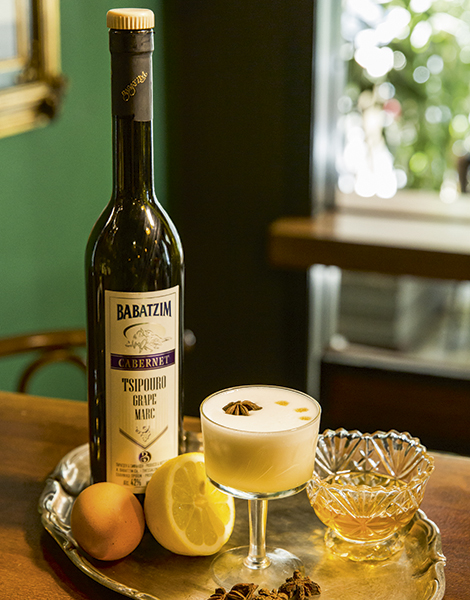
© Dimitris Vlaikos
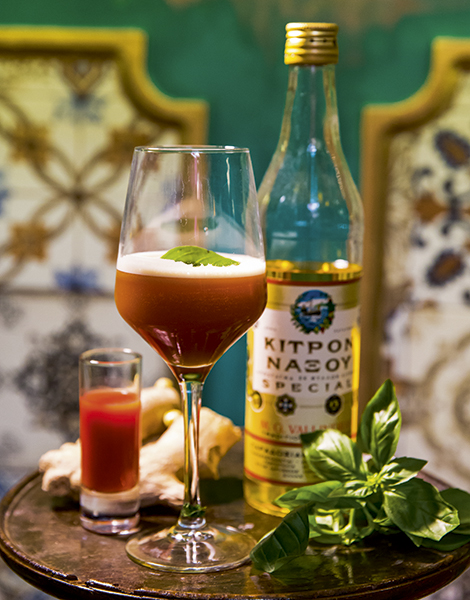
© Dimitris Vlaikos

© Dimitris Vlaikos
“Greek wines are doing well nationally and internationally, and many bartenders have taken to mixing them into cocktails.”
The difference in styles can be significant. Take Mario Basso, co-owner of Barreldier, and Dimitris Papaioannou of El Jiron, for example. One loves classic cocktails and works on improving them with modern techniques; the other has embraced all that modern mixology offers, including molecular “tools” for making new ingredients such as goat cheese foam. Yet they both keep coming back to local tastes and flavors.
One perennially popular ingredient is grapes. Greek wines are doing well nationally and internationally, and many bartenders have taken to mixing them into cocktails.
Basso, who was born in Italy, makes his vermouth using Assyrtiko wine from Santorini. Xavier Misailidis of Holy Spirit makes his Bloody Mary with red Agiorgitiko wine, while Vasilis Kyritsis, co-owner of The Clumsies, creates wine-based syrups. And there’s more to it: many cocktail menus now showcase aged tsipouro, the grape-based spirit, as well as that unique brandy-and-wine based spirit, Metaxa.
Bartenders from all over the world are beginning to take notice, too. The island of Chios, for instance, is currently attracting attention from the international mixologists’ community, thanks to products its inhabitants have been producing for hundreds of years, like rose water and orange flower water. Another example is their “soumada” which sometimes takes the place of orgeat syrup and gives its characteristic almond flavor to make Mediterranean-fusion tiki drinks. Most successful, however, is their PDO (Protected Designation of Origin) mastiha liqueur. Made from the resin of the mastic tree, it is so special, one might be tempted to enjoy it strictly on its own. However, as both Korovesis and Kyritsis point out, the world has discovered that this liqueur is also highly mixable.

© Dimitris Vlaikos
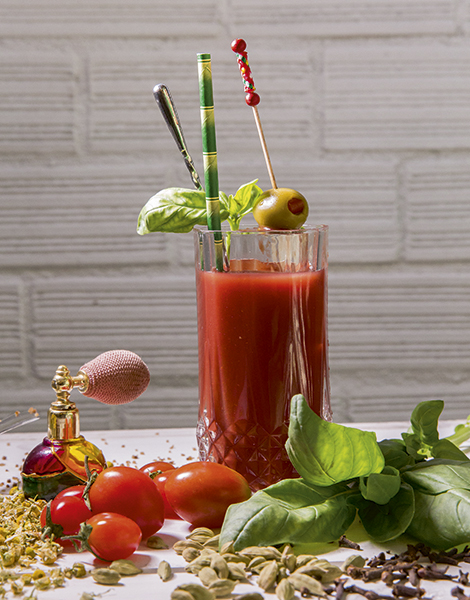
© Dimitris Vlaikos
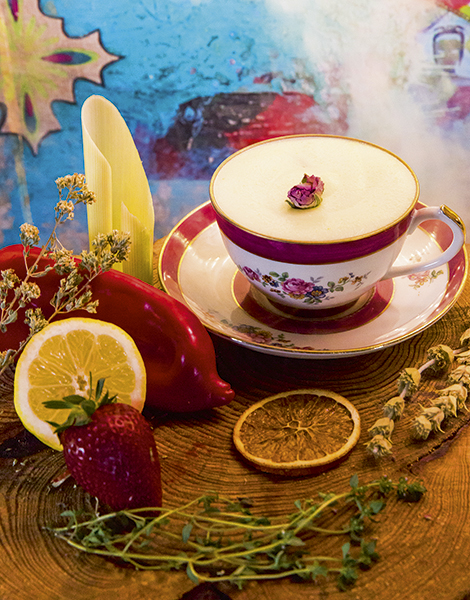
© Dimitris Vlaikos
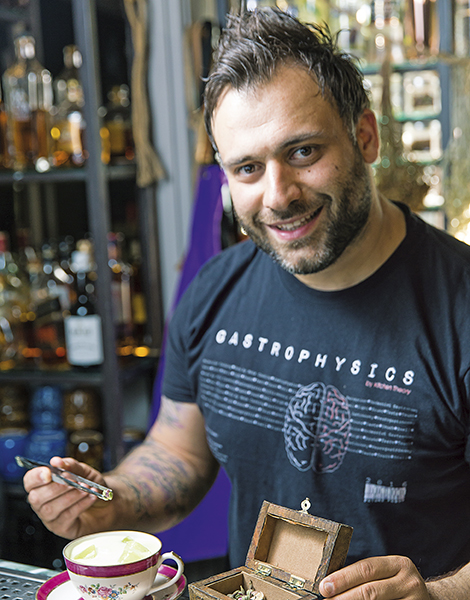
© Dimitris Vlaikos
It’s not only about Greek wines and spirits. Bartenders around the Mediterranean have the significant advantage of being surrounded by excellent local fruits and herbs all year long. Papaioannou, who is releasing a book of Greek cocktail recipes next year, will gladly try any fresh produce normally found in traditional Greek cooking, including wild greens (“horta”) and fennel.
Of course, everyone agrees that artificial flavorings are, or should be, a thing of the past, so it’s essential to be able to produce fresh juice and fruit purees. Misailidis notes that Greeks themselves usually prefer sweet and sour cocktails over bitter-sweet ones, and thinks it’s because their palettes have adjusted to the flavors of the local fruit and herbs.
In the end, thanks to the local produce, Mediterranean bartending is, in fact, very Greek. And there’s no better place to see what this trend is all about than right here, at one of Athens’ many great bars.
“Greeks usually prefer sweet and sour cocktails over bitter-sweet ones; a possible explanation is that their palettes have adjusted to the flavors of local fruit and herbs.”

